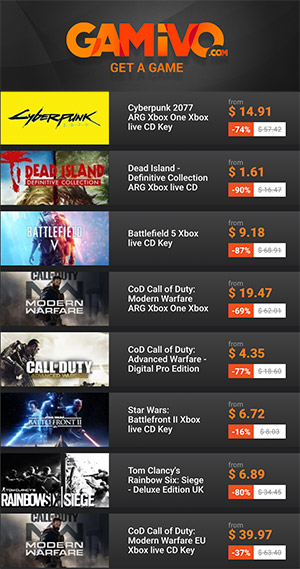

The iGaming industry, a behemoth in the digital entertainment arena, has experienced exponential growth, fueled by technological advancements and a surge in digital consumerism. This sector, encompassing online sports betting, casinos, and gaming platforms, has not only reshaped entertainment but also revolutionized the way users engage with digital leisure activities. At its core, the evolution of payment solutions plays a pivotal role, serving as the linchpin in the operational mechanics of online casinos.
Payment solutions in online casinos are not just transactional tools but the bedrock of user trust and engagement. Their importance cannot be overstated, as they directly influence user experience, trust in the platform, and the overall perception of security and reliability. An effective payment system ensures seamless transactions, fostering a sense of confidence and encouraging continued patronage.
This article delves into the evolving landscape of payment methods in the iGaming industry, highlighting their pivotal role in enhancing user convenience, security, and privacy. Advanced payment solutions have transformed the way transactions are processed, setting new standards in efficiency and security, thus enriching the overall user experience in online gaming environments.
Contextualizing iGaming Entertainment: In this transformative era, the popularity of free slots and slot games, such as the iconic Triple Diamond Slot, in online casinos, has burgeoned, serving as an accessible entry point for numerous enthusiasts. These games, including the classic Triple Diamond Slot Machine, offer a glimpse into the iGaming experience, bridging the gap between leisurely play and more serious betting endeavors. Innovations in payment solutions have streamlined the transition from free to real money gaming, making it more fluid and secure. This shift has not only enhanced the appeal of free slots and slot games but also ensured a more inclusive and comprehensive online casino ecosystem.
Evolution of Payment Methods in iGaming
The iGaming industry’s financial ecosystem has undergone significant transformation over the years. Initially, traditional payment methods such as credit cards and bank transfers dominated the scene. These methods, while reliable, often came with limitations like longer processing times and higher transaction fees, which somewhat hindered the rapid pace desired in online gaming.
The transition to digital solutions marked a pivotal moment in the history of iGaming payments. The emergence of e-wallets and online payment services, like PayPal, Skrill, and Neteller, revolutionized the way transactions are conducted. These digital solutions offered faster transaction speeds, increased security, and greater convenience, aligning perfectly with the dynamic nature of online gaming. The integration of these innovative payment methods not only enhanced the user experience but also opened up the iGaming market to a broader audience, providing a more inclusive and accessible financial environment for players around the globe.
Integration of Cryptocurrencies
The integration of cryptocurrencies in the iGaming sector represents a groundbreaking shift in the way online gaming platforms operate financially. Cryptocurrencies, like Bitcoin, Ethereum, and Litecoin, have emerged not just as alternatives to traditional fiat currencies but as harbingers of a new financial paradigm in the digital gaming world.
One of the most compelling advantages of cryptocurrencies in iGaming is the level of anonymity they provide. Players can engage in gaming activities without revealing sensitive personal information, a feature particularly appealing to those valuing privacy. Moreover, the security offered by blockchain technology, which underpins cryptocurrencies, ensures the integrity of transactions and protects against fraud.
Another significant advantage is the global accessibility of cryptocurrencies. They transcend geographical boundaries and currency exchange complications, enabling players from different parts of the world to participate in iGaming activities seamlessly. This universal accessibility not only broadens the market reach for online casinos but also enhances the convenience for players across the globe.
Several case studies exemplify the successful integration of cryptocurrencies in online casinos. For instance, CasinoCoin, a digital currency specifically designed for the regulated gaming industry, has been adopted by multiple online gaming platforms, offering users a tailored, secure, and efficient payment solution. Another example is BitStarz, a pioneering online casino that embraced Bitcoin, subsequently experiencing a surge in user base and transaction volume, underscoring the growing acceptance and demand for cryptocurrency-based gaming experiences.
Digital Wallets and Mobile Payments
The digital era has witnessed the meteoric rise of digital wallets, revolutionizing the way transactions are conducted in the iGaming sector. Leading the charge are platforms like PayPal, Skrill, and Neteller, which have become synonymous with efficiency and reliability in online financial transactions. These digital wallets offer users a streamlined approach to depositing and withdrawing funds, simplifying the process considerably compared to traditional banking methods.
Simultaneously, the proliferation of mobile payment solutions has further enhanced the convenience for iGaming enthusiasts. Technologies like Apple Pay and Google Pay enable players to transact directly from their mobile devices, combining ease of use with robust security features. These mobile payment methods utilize advanced encryption and authentication protocols, ensuring that each transaction is secure and safeguarding users’ financial information.
The benefits of digital wallets and mobile payments for users are manifold. They offer unparalleled convenience, allowing gamers to manage their funds with just a few clicks or taps. The speed of transactions is significantly improved, with deposits and withdrawals being processed in a fraction of the time taken by traditional methods. Additionally, the enhanced security features of these platforms provide a sense of confidence and peace of mind to users, knowing that their financial transactions are protected against potential cyber threats.
Innovative Payment Solutions
In the realm of iGaming, the advent of innovative payment technologies is forging new pathways for financial transactions. The rise of blockchain technology has been particularly transformative, extending its impact far beyond the realm of cryptocurrencies. This technology offers a decentralized and transparent ledger system, which enhances the security and integrity of transactions, a critical aspect in the world of online gaming.
Blockchain’s application in iGaming transcends typical currency transactions. It lays the foundation for the use of smart contracts – self-executing contracts with the terms of the agreement between buyer and seller being directly written into lines of code. These smart contracts automate processes and ensure that all parties adhere to the agreed terms, thereby reducing the likelihood of disputes and enhancing trust among users.
Furthermore, these emerging technologies are introducing new forms of payments and financial interactions within the iGaming sector. For instance, tokenization of in-game assets and the use of digital collectibles (NFTs) are opening up novel ways for players to engage with gaming platforms. The potential of these technologies in iGaming transactions is vast, promising a more secure, efficient, and innovative future for online gaming finance.
Security and Privacy Considerations
As the iGaming industry continues to evolve, the challenges of ensuring secure transactions and protecting user privacy become increasingly complex. In an environment where financial transactions are frequent and involve sensitive information, maintaining the highest levels of security is paramount.
Privacy concerns are particularly acute in online gaming, where users must often provide personal and financial details. Different payment methods come with varying levels of privacy protection, and it is crucial for platforms to ensure that user data is safeguarded against unauthorized access and breaches. This necessitates the implementation of advanced encryption technologies and stringent data protection protocols.
Regulatory compliance is another critical aspect, as iGaming platforms must navigate a complex web of international and local laws and regulations. This includes adhering to anti-money laundering (AML) directives, Know Your Customer (KYC) protocols, and other regulatory requirements designed to prevent fraud and ensure the integrity of financial transactions. Anti-fraud measures such as real-time transaction monitoring, user behavior analysis, and collaboration with financial institutions are essential in preempting and mitigating fraudulent activities.
User Convenience and Experience
The impact of payment solutions on user experience in the iGaming sector is profound. Efficient and user-friendly payment systems are crucial in providing a seamless gaming experience. The adoption of interfaces that are intuitive and easy to navigate enhances user satisfaction and fosters loyalty. These systems are designed to minimize friction in financial transactions, enabling players to focus more on their gaming experience.
Personalized payment solutions are becoming increasingly prevalent in the iGaming industry. By analyzing user behavior and preferences, online gaming platforms can offer customized payment options that cater to individual needs. This not only enhances the user experience but also encourages responsible gaming practices by providing players with options that suit their playing habits and financial capabilities.
Incorporation of Free Slots and Slot Games: The role of free slots and slot games in the iGaming ecosystem is noteworthy. These games serve as an introductory platform for new users, allowing them to familiarize themselves with the gaming environment without any financial obligation. Innovative payment solutions facilitate a smooth transition from free to paid gaming, thereby enhancing user convenience. The availability of diverse payment options plays a significant role in influencing a player’s decision to migrate from free play to real money gaming. This shift is crucial in the iGaming industry, where flexibility and diversity in payment systems are paramount. For those interested in delving deeper into this topic, click for more info.
Future of Financial Transactions in iGaming
The future of financial transactions in the iGaming industry is poised at the cusp of a technological revolution. Artificial Intelligence (AI) and machine learning are expected to play a pivotal role in payment processing. These technologies can enhance fraud detection, personalize payment experiences, and optimize transactional efficiency, offering a more secure and streamlined payment process.
The potential impact of regulatory changes on payment methods is another area of significant importance. As governments and regulatory bodies worldwide continue to update and introduce new regulations, iGaming platforms must remain agile and adaptable. These changes could lead to more stringent compliance requirements, potentially reshaping the payment landscape in terms of security, transparency, and user verification processes.
Futuristic concepts, such as virtual reality payments and biometric authentication, are set to redefine the boundaries of digital transactions. Virtual reality (VR) payments could immerse users in a more interactive and engaging payment process, while biometric authentication methods like fingerprint scanning and facial recognition could add an extra layer of security and convenience, reducing the risk of fraud and unauthorized access.
In conclusion, the continuous innovation in payment solutions is pivotal for the sustained growth of the iGaming industry. This article recapitulates the integral points discussed and offers final thoughts on the progressive trajectory of iGaming payments.


































You must be logged in to post a comment Login